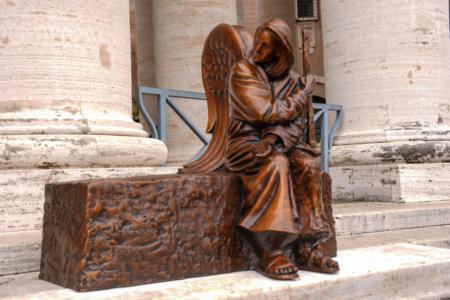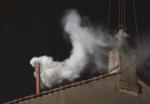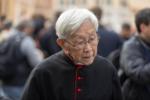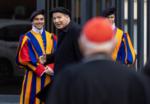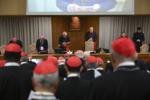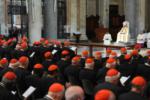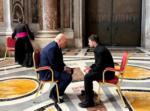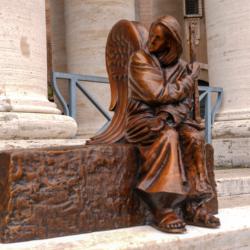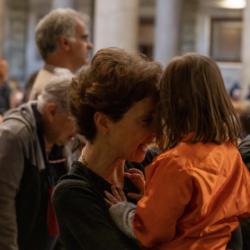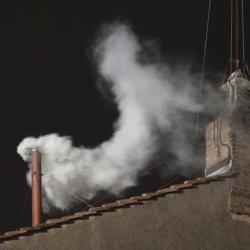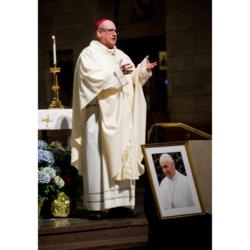BCTV program explains stem-cell research, cloning process
BRIGHTON –– As some in the Massachusetts Legislature are pushing for passage of a bill that would endorse embryonic stem-cell research, Boston Catholic Television is airing a program that seeks to explain the issue for Catholics.
The program, entitled “Cutting Through the Spin on Stem-Cells and Cloning” features Archbishop Seán P. O’Malley and Father Tadeusz Pacholczyk of the National Catholic Bioethics Center. Father Pacholczyk holds four bachelors of science degrees and a doctorate in neuroscience. The program, which includes a presentation by Father Pacholczyk followed by audience questions, was produced because stem-cell research has received extensive media coverage. Archbishop O’Malley stressed that Catholics need to be knowledgeable about this issue.
"For us as Catholics and as believers, the Gospel of life is at the cornerstone of the Church's social teaching," said the archbishop. "We are committed to defending life in all aspects from the first moment of conception until natural death."
Father Pacholczyk began by saying there are many misconceptions about stem-cell research and the Catholic Church’s position. Advocates of embryonic stem-cell research say it will benefit many people who have debilitating diseases, but Father Pacholczyk said there is an “element of hype” in this “over billing” and the research involves stem cells that are “violently extracted from a living, growing human embryo.”
Father Pacholczyk clarified that stem cells come from four sources — embryos, fetuses, umbilical cord blood and adults. The Catholic Church supports obtaining stem-cells from three of those sources — naturally miscarried fetuses, umbilical cord blood and adults.
Supporters say embryonic stem cells are more flexible, but the research in animals has been “plagued with many difficulties and problems” because the embryonic stem cells are “very good at growing tumors.” This research has resulted in no cures while adult and umbilical cord stem cells have helped thousands of people by curing or treating almost 100 diseases, he said.
Father Pacholczyk outlined several cases in which patients were cured using this research, including Laura Domingas from San Antonio, Texas who went to Portugal where doctors removed stem cells from her nasal passages and injected them into the site of her spinal cord injury. She had been paralyzed from the chest down for two years but can now walk under her own power for a short distance with the help of metal braces.
This research presents “new hope” but many are investing in the “highly speculative” embryonic stem-cell research instead.
Father Pacholczyk also dispelled the myth that therapeutic cloning is somehow different from reproductive cloning.
"Therapeutic cloning and reproductive cloning both create a cloned embryo by the same series of technical steps," he said.
A donor’s skin cell is forced to join with a woman’s egg where the nucleus has been removed. This process is also called somatic cell nuclear transfer. In reproductive cloning that embryo is placed inside a woman’s uterus and when born would be the identical twin of the donor, only younger, Father Pacholczyk said.
In therapeutic cloning “we do not offer that embryo the safe harbor of a woman’s uterus, instead we violate its integrity,” he said. The result is killing that identical twin to hopefully cure the embryo’s brother or sister.
"You are creating life precisely in order to extinguish it," he added.
Father Pacholczyk went on to talk about the human embryo, which is smaller than a period at the end of the sentence, but the size of the embryo should never be a justification for destroying it.
"Human life has been entrusted into our hands, and that life is weak. It's vulnerable by nature and cannot speak in it's own defense. Remember, we were that weak and vulnerable," he said. "The true measure of the greatness of any society, of any civilization, is always, always how it treats its weakest members."
The program will be broadcast again March 15 and 17 at 5:00 p.m. and March 19 at 1:00 p.m.
